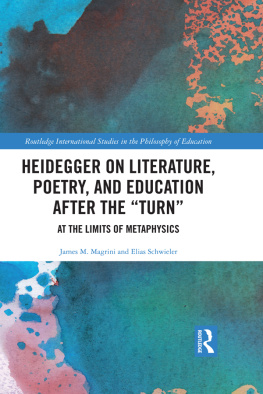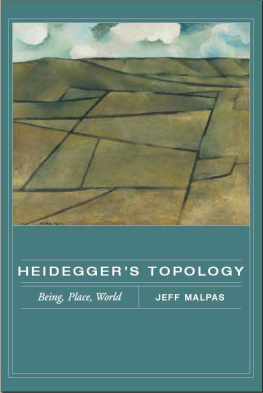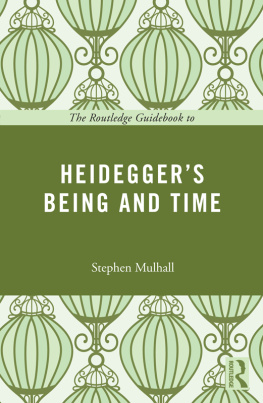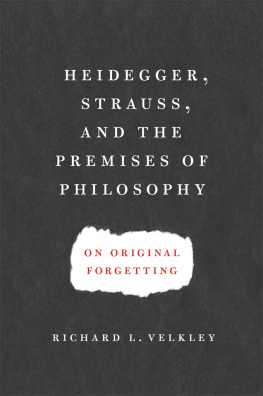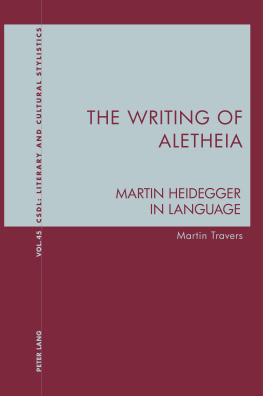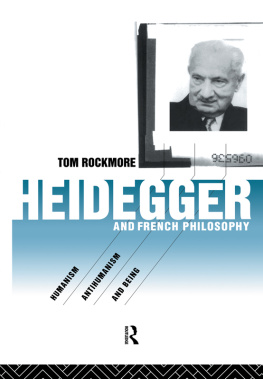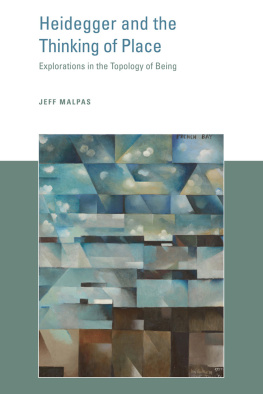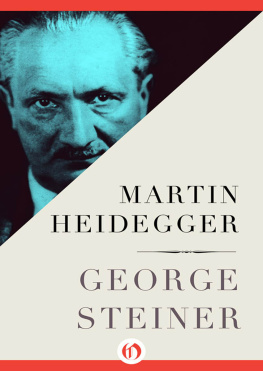Heidegger Martin - Hölderlins Hymns Germania and The Rhine
Here you can read online Heidegger Martin - Hölderlins Hymns Germania and The Rhine full text of the book (entire story) in english for free. Download pdf and epub, get meaning, cover and reviews about this ebook. City: Bloomington;Indiana;Indianapolis [Indiana, year: 2014, publisher: Indiana University Press, genre: Children. Description of the work, (preface) as well as reviews are available. Best literature library LitArk.com created for fans of good reading and offers a wide selection of genres:
Romance novel
Science fiction
Adventure
Detective
Science
History
Home and family
Prose
Art
Politics
Computer
Non-fiction
Religion
Business
Children
Humor
Choose a favorite category and find really read worthwhile books. Enjoy immersion in the world of imagination, feel the emotions of the characters or learn something new for yourself, make an fascinating discovery.

- Book:Hölderlins Hymns Germania and The Rhine
- Author:
- Publisher:Indiana University Press
- Genre:
- Year:2014
- City:Bloomington;Indiana;Indianapolis [Indiana
- Rating:3 / 5
- Favourites:Add to favourites
- Your mark:
- 60
- 1
- 2
- 3
- 4
- 5
Hölderlins Hymns Germania and The Rhine: summary, description and annotation
We offer to read an annotation, description, summary or preface (depends on what the author of the book "Hölderlins Hymns Germania and The Rhine" wrote himself). If you haven't found the necessary information about the book — write in the comments, we will try to find it.
Hölderlins Hymns Germania and The Rhine — read online for free the complete book (whole text) full work
Below is the text of the book, divided by pages. System saving the place of the last page read, allows you to conveniently read the book "Hölderlins Hymns Germania and The Rhine" online for free, without having to search again every time where you left off. Put a bookmark, and you can go to the page where you finished reading at any time.
Font size:
Interval:
Bookmark:
Hlderlins Hymns
Germania and The Rhine
Studies in Continental Thought
EDITOR
JOHN SALLIS
CONSULTING EDITORS
Robert Bernasconi | William L. McBride |
Rudolf Bernet | J. N. Mohanty |
John D. Caputo | Mary Rawlinson |
David Carr | Tom Rockmore |
Edward S. Casey | Calvin O. Schrag |
Hubert L. Dreyfus | Reiner Schrmann |
Don Ihde | Charles E. Scott |
David Farrell Krell | Thomas Sheehan |
Lenore Langsdorf | Robert Sokolowski |
Alphonso Lingis | Bruce W. Wilshire |
David Wood |
Martin Heidegger
Translated by
William McNeill
and
Julia Ireland

This book is a publication of
Indiana University Press
Office of Scholarly Publishing
Herman B Wells Library 350
1320 East 10th Street
Bloomington, Indiana 47405 USA
iupress.indiana.edu
Telephone800-842-6796
Fax812-855-7931
Published in German as Martin Heidegger, Gesamtausgabe 39: Hlderlins Hymnen Germanien und Der Rhein, ed. Susanne Ziegler
1980 by Vittorio Klostermann, Frankfurt am Main
English translation 2014 by Indiana University Press
All rights reserved
No part of this book may be reproduced or utilized in any form or by any means, electronic or mechanical, including photocopying and recording, or by any information storage and retrieval system, without permission in writing from the publisher. The Association of American University Presses Resolution on Permissions constitutes the only exception to this prohibition.  The paper used in this publication meets the minimum requirements of the American National Standard for Information SciencesPermanence of Paper for Printed Library Materials, ANSI Z39.481992.
The paper used in this publication meets the minimum requirements of the American National Standard for Information SciencesPermanence of Paper for Printed Library Materials, ANSI Z39.481992.
Manufactured in the United States of America
Library of Congress Cataloging-in-Publication Data
Heidegger, Martin, 18891976.
[Hlderlins Hymnen Germanien und Der Rhein. English]
Hlderlins Hymns Germania and The Rhine / Martin Heidegger ; translated by William McNeill and Julia Ireland.
pages cm. (Studies in Continental Thought)
ISBN 978-0-253-01421-4 (cloth : alk. paper) ISBN 978-0-253-01430-6 (ebook) 1. Hlderlin, Friedrich, 17701843. Germanien. 2. Hlderlin, Friedrich, 17701843. Rhein. I. McNeill, William Hardy, [date] translator. II. Ireland, Julia, translator. III. Title.
PT2359.H2A7433713 2014
831.6dc23
2014006761
1 2 3 4 5 19 18 17 16 15 14
PART ONE |
Chapter One |
Chapter Two |
PART TWO |
Chapter One |
Chapter Two |
Chapter Three |
This text makes available an English translation of Martin Heideggers first lecture course on Hlderlins poetry, devoted to an interpretation of the hymns Germania and The Rhine. Delivered in Freiburg in the winter semester of 193435, this course marks Heideggers first sustained engagement with Hlderlins poetizing, and is particularly important for understanding the works of Heidegger that follow in the mid- to late 1930s and beyond. Key works such as the Introduction to Metaphysics (1935), The Origin of the Work of Art (1936), and the Contributions to Philosophy (Of the Event) (193638) receive essential illumination from the first Hlderlin course, as does the 1936 essay Hlderlin and the Essence of Poetry. Prominent themes of the lecture course include not only the turn to language and poetic dwelling, as well as an engagement with the Hlderlinian themes of the Earth and of the flight of the gods, but also issues of politics and national identity. The scope and significance of the course are thus by no means limited to Heideggers encounter with a poet.
The lecture course on Germania and The Rhine was the first of three major lecture courses that Heidegger devoted to Hlderlin, the other two being a course on the hymn Remembrance, delivered in winter semester 194142, and a course on The Ister directly following in summer semester 1942.in a second, slightly revised edition in 1989. A third, unaltered edition was published in 1999. The translation presented here takes into account the minor revisions of the second edition.
Translating Heideggers lectures on Hlderlin is especially challenging, given the fact that his interpretations themselves constitute a unique and original translation of Hlderlin, an emergent and ongoing dialogue of the thinker with the poet. Thus, Heideggers interpretations placed certain constraints on the translation of Hlderlins poetry and prose, frequently requiring a somewhat more literal rendition of the German than might otherwise be ventured. In our attempts to render Hlderlins work into English in a manner befitting Heideggers readings, we have consulted and greatly benefited from the existing translations of Hlderlin by Michael Hamburger, adopting or adapting certain of his solutions on occasion.
Of the particular translation difficulties posed by Heideggers text, two merit special attention at the outset. First is the use of the German Seyn, an archaic form of Sein (being) that was used by Hlderlin and that Heidegger appropriates to mark a non-metaphysical sense of being.interiority of feeling, nor indeed a form of human relationship at all, but rather a certain tension and intensity within beyng itself. For Heideggers own discussion of Hlderlinian Innigkeit, see especially 10 of the present volume.
Throughout the lecture course, Heideggers focus is on the essence of poetic Sagen, a word that we have rendered as both saying and telling, depending on context. According to Heidegger, understanding Hlderlins poetry entails the task of mitsagen, which we have translated as the task of following the telling of the poetry. The word poetry generally translates the German Dichtung, which has also been rendered on occasion as poetic work, but for the most part as poetizing, since Heideggers attentiveness is to the inner movement and flow of the poetic telling. It should be kept in mind that Dichtung in ordinary usage refers not simply to the narrow sense of the poetic, of poetry as poesy (Posie), but to literature and the composition of literary works quite generally. See 4(b) for Heideggers discussion of this.
Since the term Dasein, referring to the being of humans, has a rigorously defined and by now well-known meaning in the early Heidegger, we have for the most part followed convention and left it untranslated. In those places where it appears to convey a more general sense of existence, we have indicated the German in brackets. Consistent with our translation of the Ister course, the word people translates
Next pageFont size:
Interval:
Bookmark:
Similar books «Hölderlins Hymns Germania and The Rhine»
Look at similar books to Hölderlins Hymns Germania and The Rhine. We have selected literature similar in name and meaning in the hope of providing readers with more options to find new, interesting, not yet read works.
Discussion, reviews of the book Hölderlins Hymns Germania and The Rhine and just readers' own opinions. Leave your comments, write what you think about the work, its meaning or the main characters. Specify what exactly you liked and what you didn't like, and why you think so.


